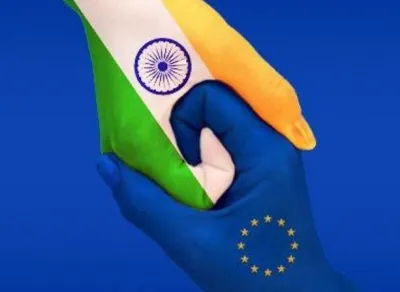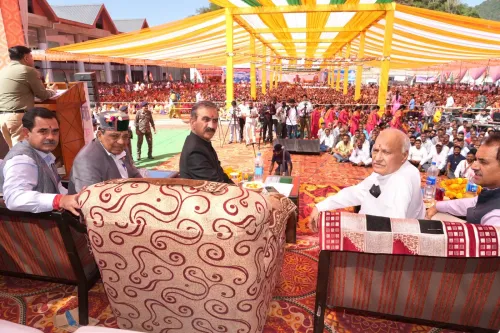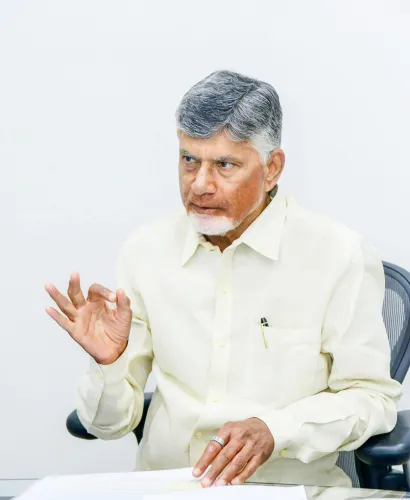Will India and the EU Finalize a Trade Deal in Three Months Amid US Tariff Tensions?

Synopsis
Key Takeaways
- Trade Pact Timeline: India and the EU aim to finalize a deal in three months.
- Global Impact: The agreement could reshape international trade dynamics.
- Strategic Interests: Both parties have distinct motivations driving the negotiations.
- Manufacturing Hub: India is becoming an essential market for European businesses.
- Complex Negotiations: Delays may reflect the intricate nature of trade discussions.
New Delhi, Oct 5 (NationPress) India and the European Union are set to conclude a trade agreement in the next three months, focusing on vital aspects such as agriculture, sustainability, and market access. This deal has the potential to revolutionize global trade, according to a recent report.
The surge in discussions has gained momentum, fueled by the tariff measures implemented by US President Donald Trump, as highlighted in a report by OneWorldOutlook.
This proposed trade pact would provide the EU with a buffer against global fluctuations, while for India, it symbolizes a strategic affirmation of its growth trajectory following a decade of reforms.
According to the report, “While the EU is motivated by the necessity to protect its market from international instability, India views this agreement as a strategic opportunity. New Delhi is not acting out of desperation but is confidently positioning itself to influence the evolving global trade landscape.”
India's burgeoning manufacturing sector, expanding digital economy, and strong domestic demand render it a vital market and production center for European companies looking for alternatives to China.
Additionally, Europe's strategy to lessen its dependence on Russia and China has elevated India to a crucial ally in its diversification efforts, despite New Delhi's ongoing ties with Moscow.
India has expressed opposition to the binding sustainability provisions related to the EU’s Carbon Border Adjustment Mechanism (CBAM), with Union Commerce Minister Piyush Goyal describing these measures as “unjust” to penalize developing countries for historical emissions.
If successfully negotiated, this trade agreement would signify India's emergence as a pivotal player in the formulation of global trade standards. Conversely, a delay would underscore the complexities inherent in negotiations between equals.









